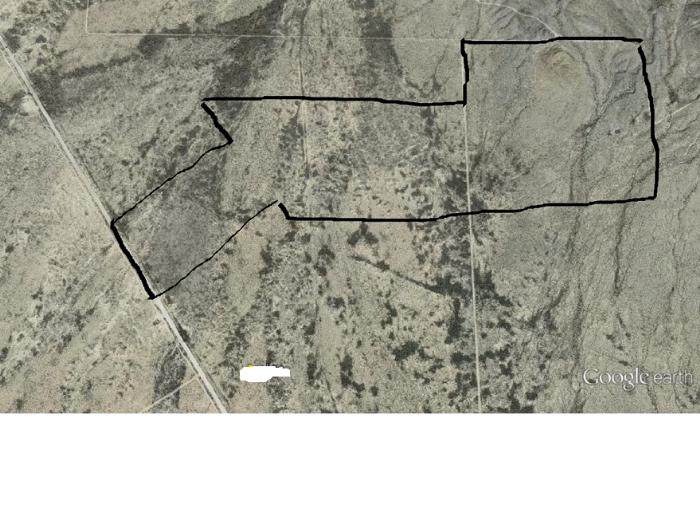Around here, the going rate for a nursing home/assisted living situation is about $6000 to 6500 a month. If you need special assistance beyond "normal" bathing, feeding, and help with your meds, yes - it can go as high as $13K as Paul mentioned.
Looking over the horizon, there are a couple of key demographic issues that are going to hit our society in the next 20 to 30 years.
First, the Baby Boomers are living longer than any previous generation. That means that the number of people living well into their 90's will continue to rise significantly. Bottom line: more old people who will need care.
Second, the expectation of using any means necessary to prolong life would appear to be rising with each passing year as technology and medicine keep people alive far longer than in decades past. It used to be that when someone reached their 70's, the medical establishment and the families that cared for the elderly used to make some common sense (albeit difficult) decisions about how much sense it makes to spend hundreds of thousands of dollars to keep Grandpa alive. Does it make sense to pay for a new artificial hip or knee when the person hasn't been active for 10 years and prefers to roll around in a wheel chair? 25 years ago the answer was clearly, "No." Today, we keep 89 year-olds alive on life support for months when all hope has passed for their recovery. Our medical system thrives on draining the last dollars from their patients' bank account with (from my perspective) needless procedures and heroic ICU-type hospitalizations.
Third, the number of people being born today is below the number of people they are supposed to be replacing. This is true in many countries throughout the world, most seriously seen in Japan, Russia and the nations of Europe. There was a fascinating book written a couple of years ago called, 'What to Expect when No One is Expecting" (a play off the title of the classic pregnancy text). Only now are we starting to realize the demographic time-bomb that awaits when nations do not produce enough young people to sustain systems of commerce, retirement, healthcare and education. In my own field (higher ed), we're seeing declining numbers of students who are of college age. It's predicted to continue to fall for the next two decades. These are the young people who have traditionally taken jobs in healthcare and elder care. Today, most of these facilities (including my father's home) are staffed almost entirely by immigrants. On a national scale, the ratios of young to old will continue to skew older and older with each passing year.
Finally, people who choose to not have 2 or more children will be faced with a dilemma that was traditionally taken care of by their offspring: can I have a room at your place rather than choose the above mentioned $6000 a month "standard option". Kids are expensive -- trust me, we've got two in college right now. But far more expensive is paying someone else to give care to you when you would have been able to stay in a home with minimal assistance -- something the family has traditionally done. The changing demographics of the "typical" American family is going to pose a serious challenge for many people when they reach those later stages of their lifespan. Simply put: they won't have a child there who would be willing to let them move in with them for that last decade or so.
Is there a permaculture solution? Given the definition that permaculture mimics natural eco-systems, perhaps its not as easy to see as other permie solutions. But a couple of principles come to mind. 1. Cooperation and diversity of the family system is good. Having my mother living with us enriches the whole system. Yes, its work, and yes, the social dynamics can be challenging. But she doesn't need $6K/month care. Its good for our children to see us dealing with these challenges, and it's good for them to have to step up and help with here care. "Go help Nanna figure out whats wrong with her cell-phone. Go help Nanna adjust the legs on her new shower chair. Will you go over and help your Nanna bring in the stuff she just bought at Lowes."
2. There is a time and a season for everything (as the Good Book so poetically says it), including death that comes naturally at the end of a long life. In the same way that it's perfectly OK to tell that apple tree or old non-laying hen, "You've served the system admirably for the span of your life, but now its time to depart with dignity", I do not feel its cruel or heartless to say, "Is this artificial life-extending technology something that we really need to utilize?" Yes, those lines are fuzzy, and require a lot of thoughtful conversation, prayer and even tears, but I don't want to be kept alive for months or years using heroic technological means. When it looks like the old pear tree is no longer benefiting the eco-system, let it die a natural death and plant something new in its place. When I'm failing and I'm not going to recover, please medicate the pain but don't put me into a facility that will just prolong the inevitable. I'm not talking about euthanasia, but rather, just letting natural systems run their course. That seems pretty permie to me.
3. We need to challenge the culture that says that the elderly are no longer needed in our family eco-systems. And the elderly need to humbly realize that they can't be such greedy consumers of family resources. Somewhere in the middle is a healthy solution.
Those are my long-winded, rambling thoughts.
My ultimate permaculture solution:
compost my old bones under the avocado tree when my time is up.

 17
17




















 8
8



 2
2



 1
1






 2
2







